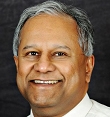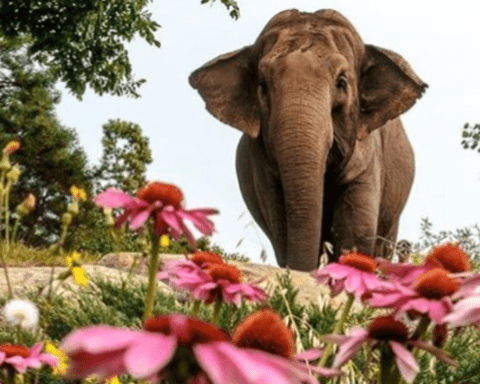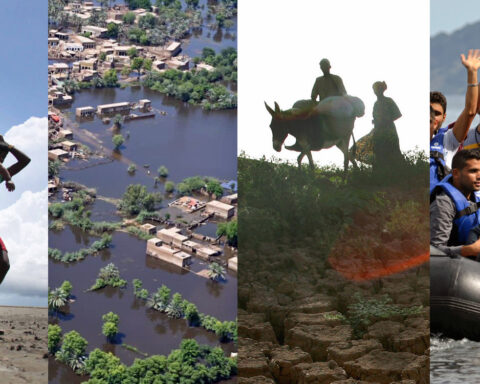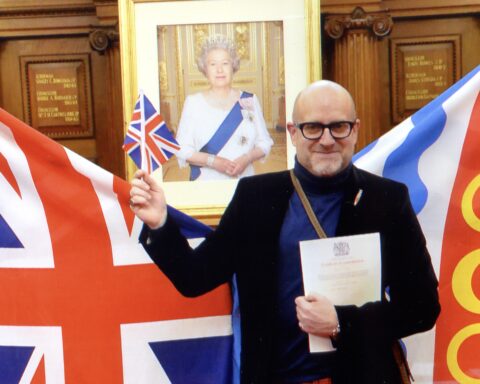The reaction in Canada to Prime Minister Stephen Harper’s decision not to attend next month’s Commonwealth summit in Sri Lanka reflects the island nation’s fault lines.
While most Sri Lankan organizations that represent the Tamil diaspora welcomed the move, some others dismissed it as “ludicrous and fallacious.” It has also triggered a robust debate on whether Canada’s domestic compulsions are at play alongside concerns about human rights violations during and after the end of the brutal 27-year conflict between the Sri Lankan government and the Liberation Tigers of Tamil Elam in 2009.
Canada has been raising its concern over rights abuses ever since the last Commonwealth Heads of Government Meeting (CHOGM) in Australia in 2011. So while Harper’s formal announcement of his intention to stay away came as no surprise, his failure to gather support from 52 other countries that make up the group has not gone unnoticed.
“On behalf of all Tamil Canadians, we thank our Prime Minister for his principled stand. Canada may stand alone at this time, but it is the right thing to do,” said David Poopalapillai, a spokesperson for the Canadian Tamil Congress. “With CHOGM just a few weeks away, we once again urge Commonwealth members to stand in solidarity with Canada”, Mr. Poopalapillai said.
He said Canada’s stand has already started yielding results and pointed out to a report in The Telegraph newspaper on Britain pulling out funds from the Commonwealth over concerns about its leadership and performance. Britain has imposed cuts of £3 million over two years from its £12m a year grant to the Commonwealth Secretariat. Harper has warned that Ottawa was looking at the scale of its own “financing”. Canada contributes about $20 million annually to various Commonwealth initiatives.
“We have to wait for the meeting to happen to see what the actual fallout from Canada’s stand will be,” said Amarnath Amarasingam, a Post-Doctoral Fellow at York University of Tamil heritage whose research interests include ethno-nationalism. Dr. Amarasingam pointed out that as Deepak Obhrai, Parliamentary Secretary to Foreign Affairs Minister John Baird, will be going to the summit, Canada’s move cannot be seen as a boycott in its full sense. However, Mr. Poopalapillai said “it is a boycott as the summit is a meeting of head of government s and our prime minister is not attending”.
At the other end of the spectrum, the Sri Lanka United National Association of Canada said Ottawa’s boycott is a mistake. “Canada’s lone campaign… is both ludicrous and fallacious especially on alleged human rights violations, as Canada too has several ugly skeletons in her own cupboard,” it said in an email.
“Sri Lanka’s pains were to a fair extent due to Canada’s failure to stop the raising of funds for the internationally banned Tamil Tiger terrorists for a considerable period which caused tremendous loss of life and damage to valuable property,”the email, published on the website of the Canadian South Asians for Peace and Unity Forum, said.
It went on to say that Canada’s harsh stance on Sri Lanka appears to be based on Mr. Harper’s attempt to impress Tamil Canadians in the Greater Toronto Area whose votes he is wooing to win a few additional ridings at the next general election “which may well boomerang for the Conservatives.”
Bilateral interests at play Canada’s lonely stand on the summit maybe the result of various bilateral interests at play, Dr. Amarasingam said. Tony Abbott, the Australian prime minister has said he would attend, citing significant dealings with Sri Lanka over people smuggling. John Key, New Zealand’s prime minister, has confirmed his attendance at a meeting in which he also asked for Sri Lanka’s support in its bid for a seat on the UN Security Council.
But Canada is not alone in its criticism of the Sri Lankan state’s human rights violations.
The most damning of the assessments was made by Navi Pillay, the UN High Commissioner for Human Rights, after her mission to Sri Lanka in August. She said Sri Lanka is showing signs of heading in an increasingly authoritarian direction despite the opportunity provided by the end of the war to construct a new vibrant, all-embracing state.
She also expressed concern at the recent surge in incitement of hatred and violence against religious minorities in the Buddhist-majority island, including attacks on churches and mosques, and the lack of swift action against the perpetrators.
“This authoritarian trend needs to be addressed. The Commonwealth has refused — not for a lack of trying on Canada’s part — to formally confront these reports, which is a complete abandonment of its founding principles and an obfuscation of its responsibilities,” said Foreign Minister John Baird in an iPolitics article on why Canada is boycotting the summit.
Hugh Segal, Canada’s special envoy to the Commonwealth, had earlier launched a direct assault on the authority of the Commonwealth Secretary General. He accused Kamalesh Sharma of “acting as a shill [a stooge] for the Sri Lankan leadership, defending their every mistake”.
Speaking to the Guardian , Senator Segal said that Sharma had concealed legal advice on the illegality of the impeachment of Sri Lanka’s chief justice. Defending Sharma’s position, a spokesperson said “the advice was sought in confidence and it was not necessary for [Sharma] to discuss it in public”.
Writing in the Globe and Mail, the senator said “the Commonwealth has sadly taken the path of least resistance. This is no credit to the Secretary General, the Commonwealth Secretariat or the member countries.”
Earlier this year, speaking at the London School of Economics, Mr. Segal said the location of the next CHOGM is less important than the very principles of the Commonwealth itself. “Logistics do not trump values in the real world. The prospective host this November, as things now stand, has a heightened duty to demonstrate a more fulsome embrace of Commonwealth values,” he said.
‘Domestic issues’
“This is a wrong attitude on the Canadian side,” G. L. Peiris, the Sri Lankan foreign minister, said. “The Commonwealth is a voluntary association of sovereign states. It’s not fair to judge a state based on domestic issues, “Prof. Peiris said.
The same “domestic issues” stick is being used against Canada’s stand because it plays host to the largest Tamil expatriate population in the world. A Sri Lankan government spokesman alluded to this when he rejected Harper’s criticisms, saying “he has his own political obligations.”
Jason Kenney, Canada’s Minister for Multiculturalism, who has been active on the Sri Lanka file, was quick to reject these charges. At a meeting in Toronto with the Tamil ethnic media, Mr. Kenney said Canada’s position is “principled” and goes beyond any domestic compulsions. He said Canada has lots of ongoing development work in Sri Lanka and will continue to engage with it. [Ottawa spent around $20 million in aid during 2011-12].
Despite the Conservatives saying that Canada’s stand is not driven by the party’s political considerations, talking tough with Sri Lanka does have its benefits. The party would want to undo the anti-Tamil rhetoric it put out during the 2011 federal elections after two ship loads of asylum seekers landing on Canadian shore. Tamil Canadian voters could play a significant role in the 2015 poll, especially in six ridings in Toronto where nearly 42,000 said the Tamil language was their mother tongue for the 2011 federal census. There are well over 100,000 Sri Lankan-born Canadians, and even more of their descendants, in Canada.
“Many in the Tamil community feel that the Liberal Party of Canada has taken them for granted. At the same time, there is an increased effort on the part of the Conservatives to reach out to the community,” Dr. Amarasingam said. With the rise of newer organizations like the Canadian Tamil Conservative Association , it is likely that the community’s involvement with mainstream politics will look different in the future, he said.
While National Democratic Party leader Tom Mulcair has not said that the Conservative move to woo Tamils is another of Mr. Harper’s “watered down attempts to copy NDP policies” similar to those on consumer issues in the Speech from the Throne, Canada’s official opposition party too has been vocal about boycotting the CHOGM and had launched a petition campaign to put pressure on the government.
“Canada must take a principled stance regarding the Sri Lankan government’s continued human rights abuses and refusal to conduct an independent investigation of war crimes allegations,” Rathika Sitsabaiesan, NDP MP for Scarborough-Rouge River in Toronto, said in a statement. – New Canadian Media
Ranjit is a Toronto-based writer with interest in Canadian civic affairs, immigration, the environment and motoring. Maytree and Al Jazzera English alumnus.





